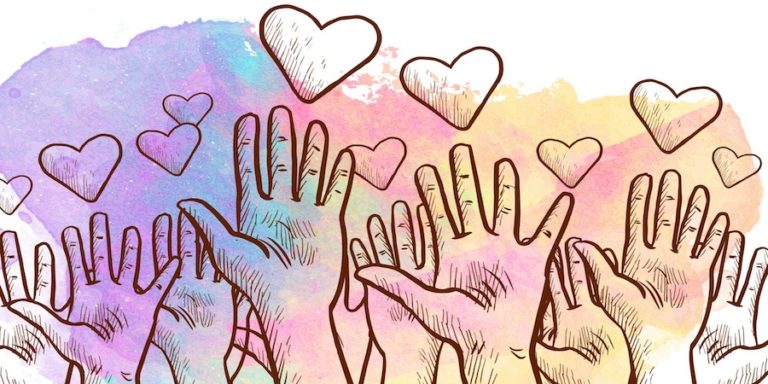View from the Bottom
Anybody who has made it to adulthood has had some experience of the fundamental precariousness of life. Some have had much more than others. It is as if you were standing in a forest and heard the wind whistle behind you and looking, you saw that you were on the edge of a steep cliff.
Too abruptly, tragic things happen. The security with which we live suddenly vanishes. There is no protection against death, accident, disease, unemployment, or failure of various sorts.
By itself, being poor does not bring wisdom. What teaches is the precariousness that goes with being poor. Things are at question that are not even imagined to be at risk in the middle class life to which so many Americans have become accustomed. Whether it is food, transportation, employment, health care, addiction, imprisonment, heat, or something else, the precariousness of life is not something that the poor must imagine, or that the comfortable can imagine. It is a daily reality that increases with one’s level of poverty.
And it decreases with one’s level of affluence.
Lenten disciplines of self-denial or fasting are a voluntary descent into precariousness. That is, one takes away something in order to experience not having – the experience that is feared.
We engage in voluntary self-denial to understand something that is only fully taught by involuntary denial. It should be no secret that the poor are frequently more thankful than the rich. Anybody who has been to a Twelve-Step meeting is familiar with the phrase, “grateful recovering alcoholic or addict.”
Neither the life of the “haves” nor that of the “have-nots” is actually what you would think. If it were so good up on the high ground, why would there be so many who are intrigued with the life of the poor, or be seeking constantly the adventure of near-catastrophe? Is it not that we must recapture the precariousness of life in order to find meaning and gratitude?
One of the Eucharistic prayers of the church includes a reference to a “sacrifice of praise and thanksgiving.” In what way would praise and thanksgiving be a sacrifice? Only, perhaps, if one has not yet been forced to surrender the sense of entitlement to a placid and successful life.
Christians have particular difficulty in appreciating the death and resurrection of Jesus. Centuries of sanitized church doctrines have made Jesus’ ministry, his work, his conflicts, his struggles, his decisions, and his torture into a kind of play-acting, a kind of voluntary fasting carried out by an actually invulnerable divine character. It didn’t really hurt. It didn’t have anything to do with the destructive Pharisaism mated early with Western culture, the dark covenants coating economic oppression with religious blessing. It was a ritual drama in which a divine accountant balances the books of personal morality.
It should be obvious that this sanitized picture of Jesus is not accurate; but it too easily captures our thought. The truth is, there is nothing voluntary about the options he faced, about the reality of precariousness. The Bell Tolls quickly and unexpectedly for everyone; and there are many who live daily with its music in the next block, right in the neighborhood.
The epic tale is not about guilt and shame – although this society is mired in it. It is actually about glory.
There is no salvation, no healing, without something being broken. There is no blessing without impossibility and the real threat of failure. There is no sense of life without the shadow of death first presenting itself.
The view from the bottom is actually the most comprehensive view. But this is counter-intuitive. With privilege we see from above — we know much and we think we know more. There is something to be read and stated on every topic. We even study poverty and need and tragedy and make a living trying to heal and fix them. We see movies and television that provoke our fears and then, sometimes, answer them. And we visit persons in need not only for their sake but, if the truth be known, greatly for our own.
So it is for those who are free to travel, free to learn, free to work, free to live, free to talk, free to read.
What is missing from this freedom is the cost, and therefore, the gift. And therefore, the thankfulness. And therefore, the humility, and therefore, the giving. The gift comes only when we do not have and cannot get, when we are broken and cannot fix, when we are lost and cannot find, when we are hungry and cannot eat. Then the gift of it all may be clear.
It is usually easier to be anxious about everything if you have, than if you have not. If you have not, the real threat is apparent. Anxiety is particular and targeted. You go on and live because you may only have one day. The more you have but have sensed the precariousness of life, the more likely it is that your anxiety and self-protective behavior may lose their bounds, since you cannot know where the threat may finally occur.
The events of life may conspire to offer us, finally and increasingly, a view from the bottom. The bottom is the same, whether it is deep or shallow. The real bottom is a soul-knowledge that life is beyond our control, that we are living in the glory of constant gift, that the miracle of God is on our tongue, and in the air we breathe. On that bottom, the Lord is free to build, and we are free to receive. On that rock, and that rock only, can the Lord build the church.
From the bottom the crucifixion of Jesus appears inevitable. From the bottom, in the spirit, comes the certainty of resurrection.
B. P. Campbell
Pastoral Director



Amen and amen.
Friend.. speaks my mind and heart.